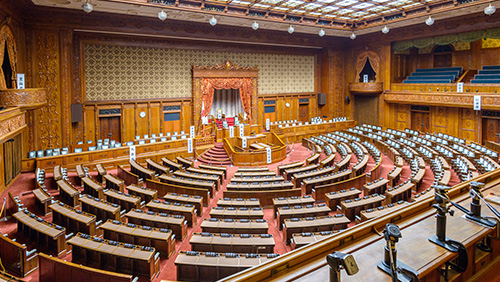Japan’s Liberal Democratic Party (LDP) and its political partner Komeito are in charge and there’s no way to argue this point. The governing coalition won elections this past Sunday to control the House of Councillors, the country’s upper parliamentary chamber, reinforcing the LDP’s position and also giving supporters of Japan’s integrated resort (IR) legislation a sigh of relief. The LDP  and Komeito have been leading a push for IRs and, now in command of the House of Councillors, they can continue to drive their plans forward.
and Komeito have been leading a push for IRs and, now in command of the House of Councillors, they can continue to drive their plans forward.
It isn’t as surprising that the LDP secured a victory – it has run on a platform of greater economic value and improved gross domestic product, among others, and is led by the country’s Prime Minister, Shinzo Abe. On the other hand, Komeito is a political party that has its roots in Buddhism and, as such, hasn’t always been as vocal on the subject of economics or gambling. This changed during its most recent political campaign, though, as the party began promoting IRs for the first time in its history.
According to Kyodo News, the LDP/Komeito coalition grabbed 71 of the 124 seats that were being contested. 57 went to the ruling party and 14 to its ally. There are a total of 245 seats in the chamber and the coalition now controls 160, just under two-thirds of the total. This is a slight dip from the coalition’s previous presence in the chamber, which was slightly more than two-thirds.
This is significant because controlling two-thirds of the chamber means controlling the outcome of a lot of legislative efforts. One in particular has been a plan by Abe to revise the country’s Constitution, but this is most likely not going to be possible given the outcome of the election.
Now that the elections are out of the way and the LDP has the House of Councillors secured for the upcoming term, it’s time to get down to business. Japan needs to introduce the regulatory framework for IRs and begin selecting locations, both of which had been delayed due to the elections.
In a poll conducted during Sunday’s vote, many respondents indicated that the IR subject isn’t as important as some other public-impacting topics. However, according to Kyodo News, the results could be skewed because less than half of the eligible voting population took part in the election, which means they didn’t take part in the survey, either.





